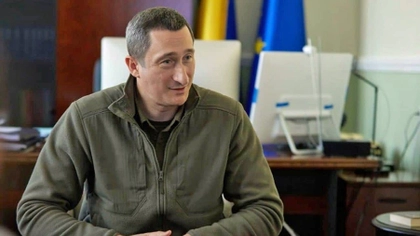The Verkhovna Rada of Ukraine has canceled its scheduled Nov.22 meeting due to security concerns, Ukraine's lawmaker Oleksiy Goncharenko reported. The session was expected to include a government Q&A hour but was called off following a warning about a potential Russian strike on Kyiv’s government quarter.
Ukrainska Pravda reported that people's deputies were advised to limit their presence in the area and were urged to ensure the safety of their families. Goncharenko stated that the next parliamentary meeting is planned for December.
JOIN US ON TELEGRAM
Follow our coverage of the war on the @Kyivpost_official.
Prior to that, On Nov. 20, the US Embassy in Kyiv closed, citing intelligence about a potential "significant air attack." Several Western embassies also temporarily suspended operations.
That same night, Russian forces struck the Pivdenmash (formerly known as Yuzhmash) plant in Dnipro with a ballistic missile.
Initial reports suggested that Russia may have used an intercontinental ballistic missile (ICBM) against Ukraine for the first time in the early hours of Nov. 21. However, the exact type of missile involved remained uncertain.
Later in the day, during an evening address, President Vladimir Putin confirmed that Russia had used a new, experimental hypersonic medium-range ballistic missile named Oreshnik (Hazel tree) in an attack on Dnipro.
He claimed that the strike was a response to Ukrainian attacks on Russia's Bryansk and Kursk regions, which utilized Western-supplied ATACMS and Storm Shadow missiles.

Massive SBU and SSO Drone Strikes Hit Ryazan Oil Refinery, Triggering Fires and Airport Closures in Russia
In what analysts said was intended as a warning to the countries arming Ukraine, the Russian leader hinted the missile was capable of unleashing a nuclear payload.
Kremlin spokesman Dmitri Peskov said Moscow had informed Washington of the missile's launch half an hour before it was fired through an automatic nuclear de-escalation hotline, in remarks cited in state media.
Rising Tensions
Tensions between Moscow and Ukraine’s Western allies have escalated since the arrival of North Korean troops in support of Russia and increased Russian missile and drone attacks on Ukrainian cities.
In response, Washington has greenlit Ukraine’s use of Western-supplied long-range missiles to strike military targets on Russian territory.
A Ukrainian attack with an ATACMS missiles on a Russian ammunitions depot, carried out on Tuesday, came after US President Joe Biden gave permission for Ukraine to launch such strikes at military targets in Russia for the first time.
Washington is also set to provide Ukraine with antipersonnel landmines to bolster its defenses against Russian forces.
On the same day, Russian President Vladimir Putin signed a decree lowering the threshold for deploying nuclear weapons, a decision swiftly condemned by Western nations as “irresponsible.”
With just two months left in his term, Biden is intensifying support for Ukraine’s military efforts before the transition to Donald Trump, who has pledged to end the war quickly – potentially by withdrawing support from Ukraine, takes place in January.
You can also highlight the text and press Ctrl + Enter










